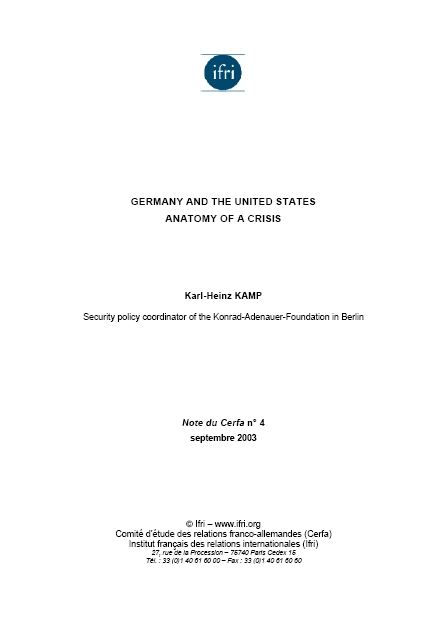Germany and the United States: Anatomy of a Crisis

The relations between Germany and the United States of America are facing one of the gravest crises in decades.
What began as a number of foolish statements by Social Democratic politicians throughout the German election campaign in autumn last year, had swiftly escalated into an almost hostile climate where mutual allegations replaced trustful dialogue. Members of the Bush administration contributed their share to the exacerbation of the atmosphere. Both sides increasingly preferred to talk about each other instead of with each other. The fact that the German Chancellor Schroeder almost proudly admitted that he had no telephone conversation with U.S. president Bush for weeks, was a unique and distinct example for the level of deadlock in the bilateral relationship.
Decades of close cooperation are at stake. Today, it seems hard to imagine that a past US president once characterized Germany as America's desired "partner in leadership". Similarly, the pledge of "unconditional solidarity" made by a German chancellor less than two years ago appears already to be history. What has happened to destroy one of the closest relationships in contemporary history so quickly and so thoroughly? And what needs to be done, to at least partly attenuate existing tensions and to provide fertile ground for the reestablishment of trust and confidence?
Karl-Heinz KAMP is Security policy coordinator of the Konrad-Adenauer-Foundation in Berlin.
Download the full analysis
This page contains only a summary of our work. If you would like to have access to all the information from our research on the subject, you can download the full version in PDF format.
Germany and the United States: Anatomy of a Crisis




